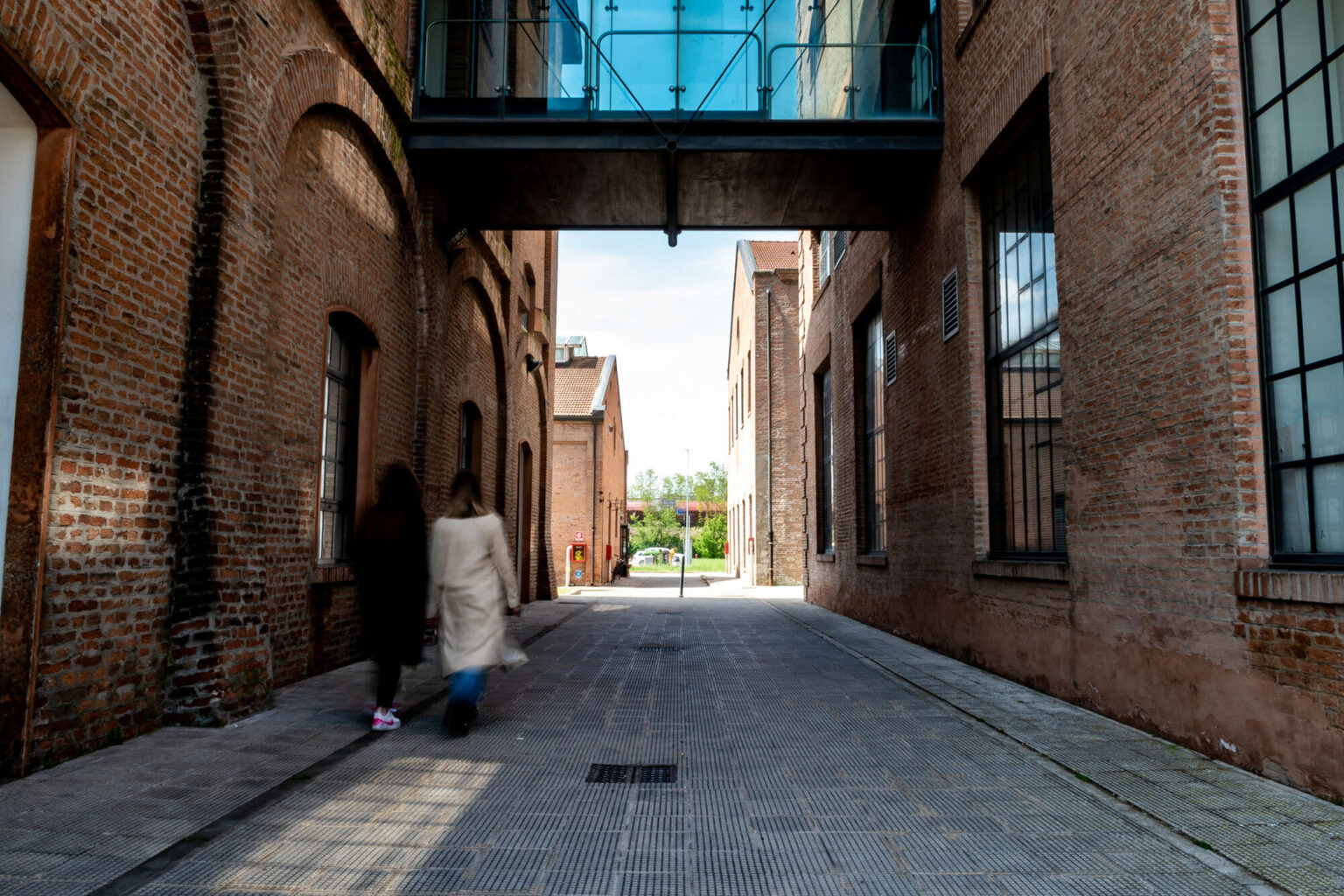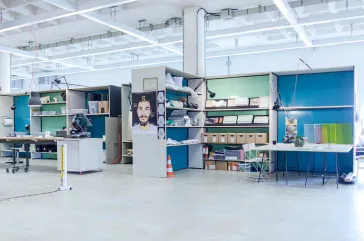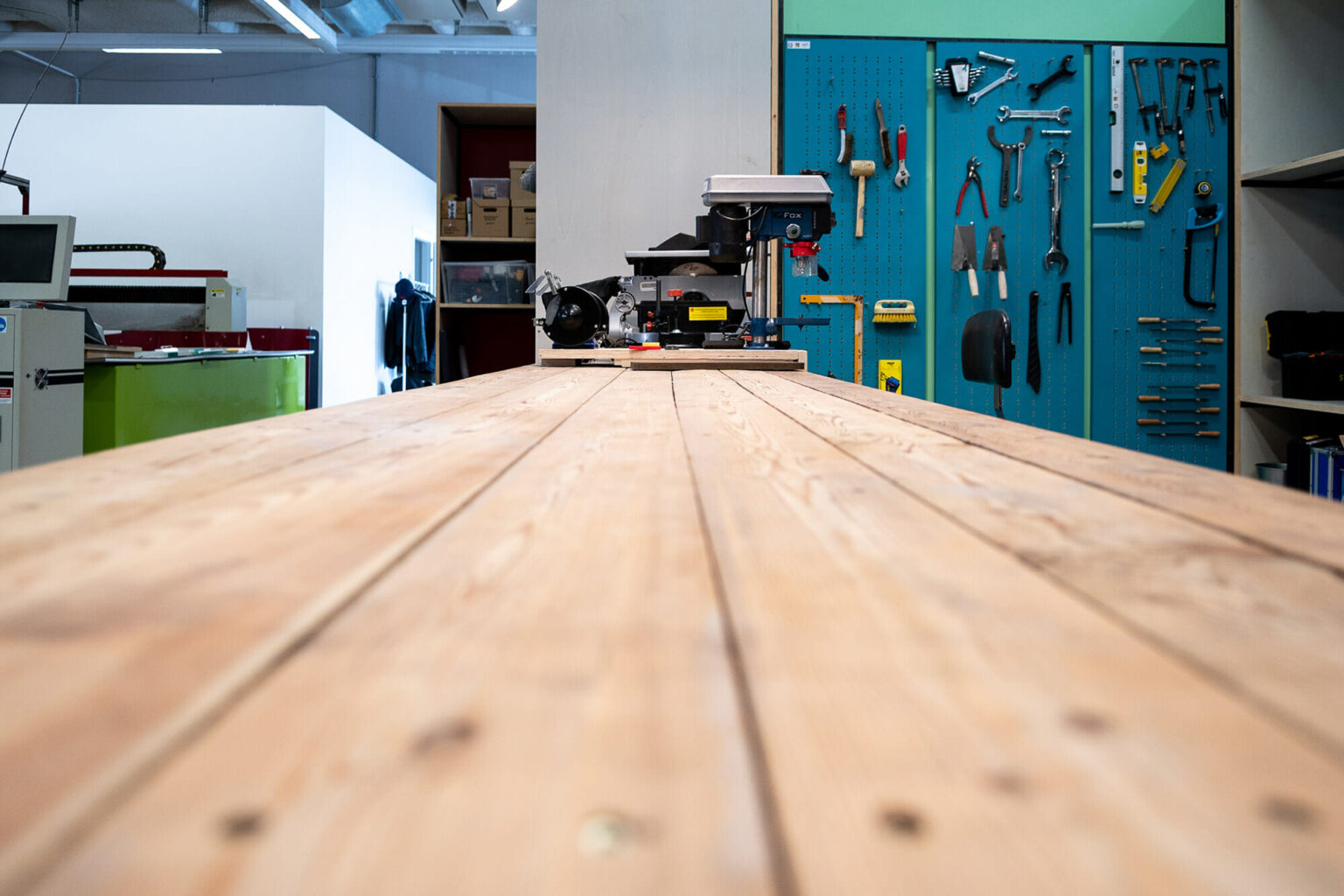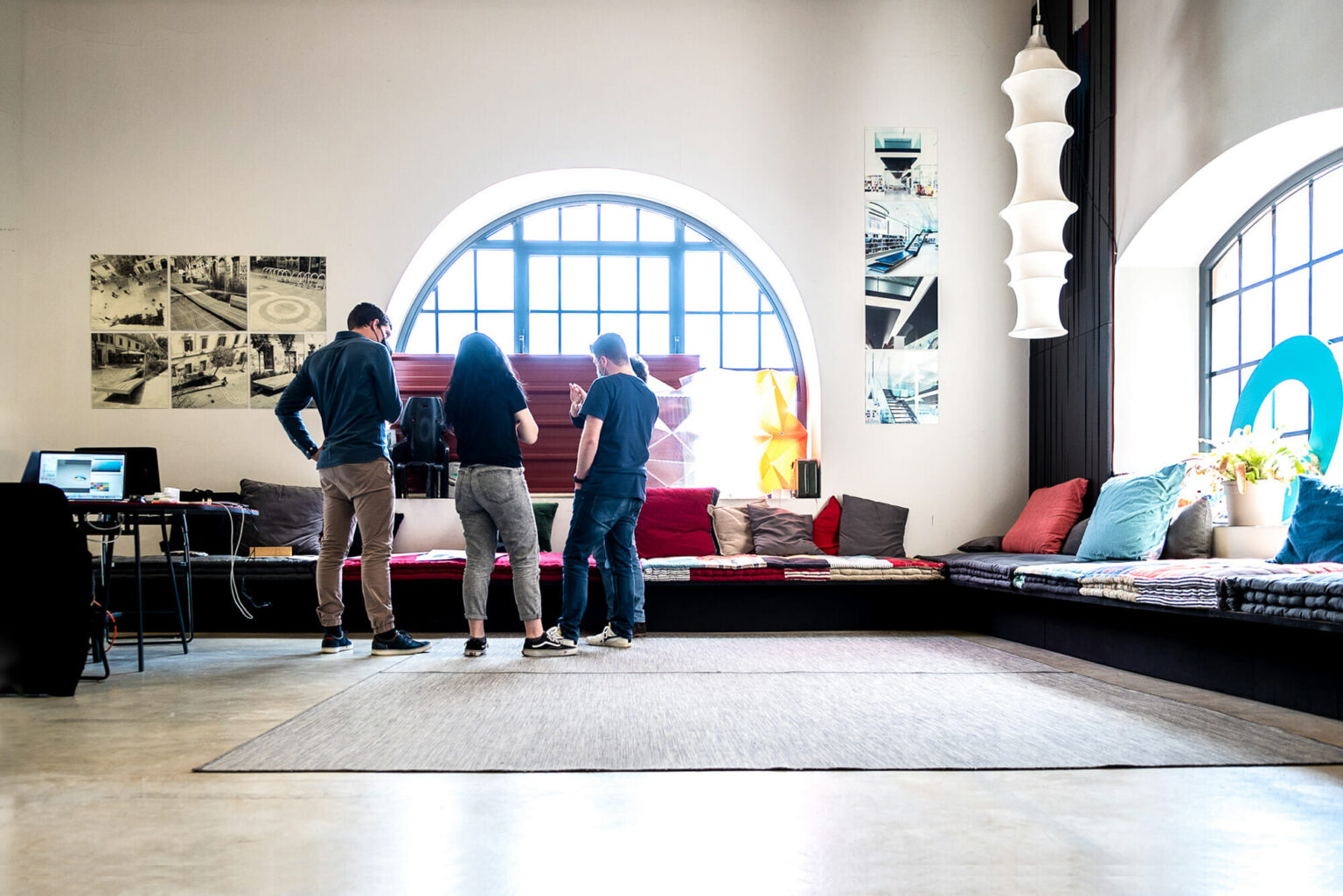Specialization Courses
A training catalog on the skills most in demand in the world of business, design and new technologies for contemporary professional scenarios.
→ 5 courses
→ 130 hours – 13 weekends
→ 9:30 a.m. – 5:30 p.m.
→ 10+ lecturers
The courses are aimed at those who are seeking to position themselves job-wise with specific/up-to-date skills whether they are operating as freelancers or within organizations.
→ Minimum requirements
Bachelor’s Degree or Diploma of Higher Professional Education in the fields of architectural science, industrial design, communication design, communication science, cultural heritage, curatorship and related subjects.
Applicants who have worked in the field for at least three years will also be considered.
A course for every field
The SID Specialization Courses are the result of a collaboration between Scuola Italiana Design, Galileo Visionary District and PopLab, with the aim of offering advanced training in key areas of contemporary design.
The SID method combines theory and practice, developing design and strategic skills to meet the challenges of industry, culture and society.
The educational offerings include five courses, each focusing on a specific field: product design, visual communication, user experience, design management, and artificial intelligence applied to design. The approach is systemic and interdisciplinary, and is based on a process from needs analysis to technological innovation. Courses offer vertical specialization, responding to market needs with flexible, adaptable to class groups and research-based curricula.
It is not just about learning a trade, but actively contributing to the evolution of the profession, developing a critical and change-oriented outlook.
Teaching is organized in weekly modules, with theoretical lectures, workshops, laboratory time and case studies. The faculty consists of guest lecturers from leading companies, studios and institutions. Each course is coordinated by an experienced lecturer, ensuring consistency, quality and attention to individual pathways. Students have access to a Digital Library with in-depth materials and resources.
Designed for recent graduates, new graduates and young professionals, these courses are an opportunity to hone skills, acquire a solid method and develop a conscious design vision. An immersive course for those who want to lead change and help redefine the future of design.
Modules are held on Fridays and Saturdays from November 2025 to April 2026.
DECS
DECS
Specialization Course in Circular Design and Product System.
Designing today means rethinking the life cycle of products, considering materials, processes and environmental impacts, to develop sustainable and responsible solutions.
→ From Product to Product System
What does advanced product design mean today?
Product design can no longer be limited to simply creating objects, but must address environmental and social challenges with a systemic and responsible approach. Material shortages, climate change, and new European directives are pushing designers to rethink the life cycle of products, integrating sustainable solutions, innovative materials, and circular economy strategies. The course provides tools to design products and systems capable of reducingenvironmental impact and adapting to market changes.
Course structure
DECS’ training is divided into four main phases. It starts with sustainable design, analyzing the product life cycle and delving into the principles of circular economy and digitization. It then moves on to reading and design, where research and ergonomic analysis are combined with the definition of a conscious design strategy. The next phase, devoted to conscious translation, explores the use of materials, product language and semiotics applied to design. Finally, the Master Project allows for the application of acquired knowledge through a real project developed in collaboration with partner companies.
Course Objectives.
The goal of DECS is to provide participants with a sustainable design approach that enables them to manage design variables with awareness and responsibility. The course aims to develop a critical view of product design, refining the ability to integrate materials, aesthetics and function to meet contemporary market needs.
To whom it is addressed
The course is designed for recent graduates and professionals from the fields of product design, architecture, engineering, and sustainability who wish to specialize in circular system design and delve into product lifecycle management methodologies.
Where it takes place
The course is held at Poplab (Rovigo), the research laboratory of Scuola Italiana Design, an experimental and interdisciplinary environment that fosters hands-on learning and collaboration with companies and industry professionals.
DEMA
DEMA
Postgraduate Course in Design Management and Services
To manage and innovate in the design world, it is crucial to integrate strategic, design and organizational skills, creating value for companies, institutions and startups.
Design management between strategy and innovation
The market requires professionals who can combine design, strategic vision and creative process management. Design is not just aesthetics, but a tool to drive innovation, read trends and develop sustainable business models. This course offers comprehensive training for those who want to manage complex projects, understand market behavior and coordinate multidisciplinary teams, acquiring skills in business strategy, neuromarketing and design thinking.
Course structure
The curriculum is divided into five modules. The first introduces business strategy, addressing scenario building, strategic planning and the development of scalable business models. Next, it delves into management and leadership dynamics, with a focus on project management, team building and public speaking. The third module focuses on marketing strategy, exploring branding and social media strategies, while the fourth examines the opportunities of sustainability and innovation to create responsible and competitive businesses. Finally, Fast Project Work allows you to apply the skills learned in the creation and presentation of a business plan for an innovative startup.
Course Objectives.
The course aims to develop a strategic and management mindset, providing practical tools to innovate and manage design projects with a systems approach. Participants will learn how to read the market, develop effective strategies and build sustainable business models, gaining key skills for the future of the industry.
To whom it is addressed
The course is designed for recent graduates and professionals from design, business, marketing, communications and engineering management who are interested in integrating design with strategic management and innovation.
Where it takes place
The course is being held in the educational spaces of the Galileo Visionary District in Padua, a hub dedicated to research and innovation and a reference point for companies and professionals in the field.
DEUX
DEUX
Specialization Course in User Experience and User Interface Design.
Designing digital experiences means creating intuitive and engaging interfaces that respond to user needs, enhancing human-computer interaction.
The importance of UX/UI Design in the digital world
In the digital age, user experience (UX) and user interface (UI) are critical to the success of products and services. Effective design not only makes interactions smoother, but also increases user satisfaction and brand loyalty. This course aims to provide the skills needed to design interfaces that are both functional and aesthetically pleasing through a user-centered approach.
Course structure
The training is divided into four main modules. It begins with an introduction to UX/UI Design, in which fundamental principles and industry best practices are explored. Next, the course delves into user research and analysis techniques, teaching how to understand the needs and behaviors of the target audience through qualitative and quantitative methods. The third module focuses on design and prototyping, providing the skills needed to create wireframes, interactive prototypes, and usability-optimized interfaces. Finally, the Master Project represents an opportunity to put what has been learned into practice, developing a complete interface in collaboration with partner companies, with the goal of creating intuitive and functional digital experiences.
Course Objectives.
The goal of this course is to provide a thorough understanding of UX and UI Design principles, enabling students to develop practical skills in user research and data analysis. Along the way, advanced design and prototyping techniques will be explored, preparing participants to manage complex projects in professional settings. The course offers a practical and strategic approach, helping students to create effective interfaces that enhance the user experience.
To whom it is addressed
The course is designed for recent graduates and professionals from the fields of design, computer science, cognitive psychology and marketing who wish to specialize in UX/UI Design and acquire the methodologies for creating effective and accessible user interfaces.
Where it takes place
The course is held at Poplab, the research lab of Scuola Italiana Design, an innovative, interdisciplinary environment that promotes hands-on learning and collaboration with industry professionals.
DECO
DECO
Postgraduate Course in Complex Communications Design
Designing communication today means understanding digital dynamics and how messages are transmitted, received, and reprocessed in different social and technological contexts.
The Digital Practitioner and the challenge of complexity
The world of communication is evolving rapidly, continually rewriting the rules of digital information. The overabundance of content and the growing integration of physical and digital realities require professionals who can read, interpret and design effective communication flows. The course trains knowledgeable digital practitioners capable of managing the complexity of the digital ecosystem with ethics and design responsibility, using innovative tools and strategies.
Course structure
The curriculum is developed through four main modules. It starts with the study of digital and immersive experience, analyzing how users interact with messages in different digital environments. Next, the focus shifts to technologies and sociocultural processes, exploring the relationship between real and virtual and how new technologies affect communication. The third module addresses analog and digital practices, delving into design thinking and visual identity to develop effective communication strategies. Finally, the Master Project offers the opportunity to apply the skills acquired, working on a concrete data visualization or interaction design project.
Course Objectives.
The course aims to provide advanced tools for designing complex communication systems, developing a critical awareness of information management and digital communication ethics. Through a practical and strategic approach, participants will learn how to make content more accessible and engaging, improving the quality of user-message interaction.
To whom it is addressed
The course is aimed at recent graduates and professionals from communication design, digital media, UX/UI, and marketing strategy who wish to learn more about the interaction between digital technologies and content production.
Where it takes place
The course is held in Poplab, the research laboratory of Scuola Italiana Design, an experimental and interdisciplinary environment that fosters hands-on learning and collaboration with companies and professionals.
AIDE
AIDE
Postgraduate Course in Design Management and Services
Artificial Intelligence is transforming the way we design, produce and interact with objects, opening up new possibilities for the future of design.
→ AI and Design: a new design paradigm.
The integration of Artificial Intelligence into industrial design is revolutionizing creative processes, making them more efficient, adaptable and innovative. This course provides an overview of the main generative AI tools, exploring their impact on the processes of research, analysis and development of products and communication strategies. Participants will gain a critical understanding of the role of AI in design, learning how to harness these technologies in an informed and ethical manner.
Course structure
The program is divided into four main modules. The first, AI Fundamentals, introduces the basics of Artificial Intelligence, explaining the main technologies, the differences between machine learning and deep learning, and their impact on design and communication. The second module, AI Tools, explores practical tools for image, content and data visualization generation, enabling participants to apply AI technologies to their own projects. The third module, Strategic Design, focuses on the potential of AI in building innovation strategies, data analysis and innovation management. Finally, the Human Values module delves into the evolution of AI in society, addressing issues related to ethics, philosophy of technology, and the development of soft skills for the management figures of the future.
Course Objectives.
The course aims to provide a solid understanding of the tools and applications of Artificial Intelligence in industrial design. Participants will develop practical skills for using advanced AI platforms, understand the ethical and strategic implications of these technologies, and acquire tools for integrating AI into design and innovation processes.
To whom it is addressed
The course is designed for recent graduates and professionals in the fields of design, marketing, communication and technology who want to learn more about using AI to improve creative processes, optimize product development and define new communication strategies.
Where it takes place
The course is held at Poplab, the research laboratory of Scuola Italiana Design, an experimental and interdisciplinary environment that fosters hands-on learning and collaboration with companies and industry professionals.
To whom they are addressed
The Specialization Courses are designed for those who wish to consolidate and update their skills, positioning themselves in the labor market with a more mature and specialized design profile. They are aimed at those who work as freelancers or within companies, professional studios and institutions, and want to acquire advanced tools to face the challenges of contemporary design.
Thanks to a flexible and experimental teaching approach, these pathways make it possible to integrate practice with research, adapting to the needs of class groups. It is not just about learning new methodologies, but actively contributing to the evolution of the profession, anticipating changes in the field and developing a critical and responsible view of design.
Requirements
The Specialization Courses are open to all persons holding a Bachelor’s Degree or Higher Professional Education Diploma in disciplines related to architecture, industrial design, visual and strategic communication, marketing, communication sciences, cultural heritage, curatorship, business management and user experience.
Professionals with at least three years of experience in the field who wish to broaden their skills and delve into design, strategic and digital tools to address contemporary design challenges with greater awareness are also eligible to apply.
SID and Poplab
The Specialization Courses are held at PopLab, the applied research center of the Galileo Visionary District in Rovigo, a space dedicated to experimentation, design culture and innovation.
PopLab hosts advanced training activities, workshops, exhibitions, talks and interdisciplinary laboratories, and is the place where SID education confronts businesses, territories and contemporary challenges.
Instead, the DEMA course is held at Scuola Italiana Design’s headquarters in Padua, Italy, within the science and creative area of the Galileo Visionary District.








